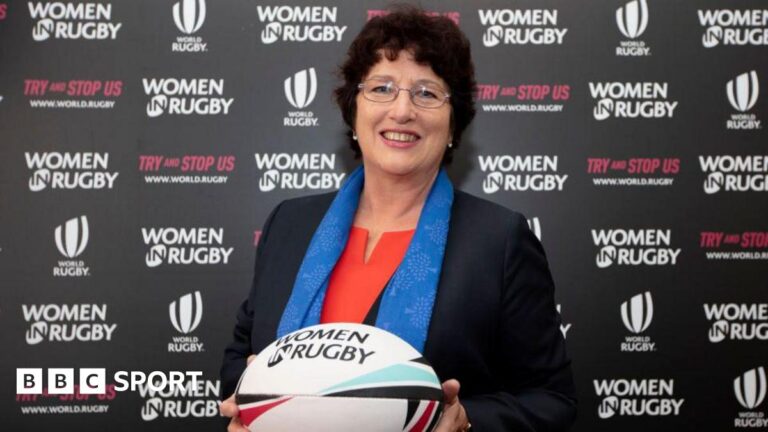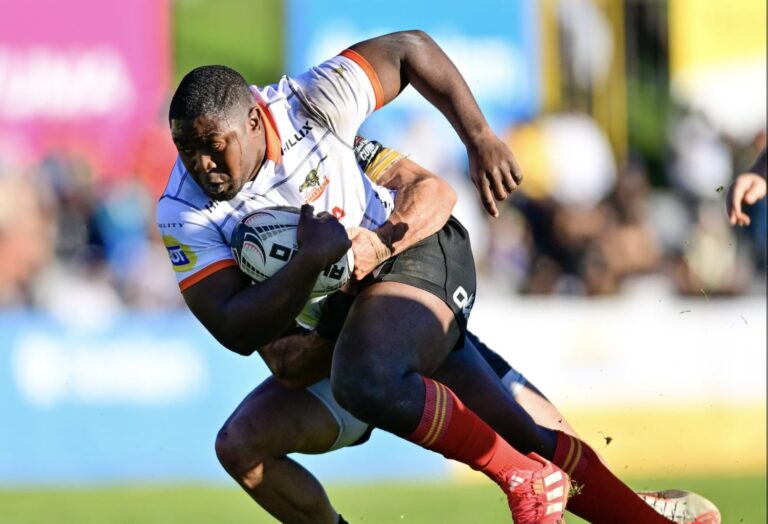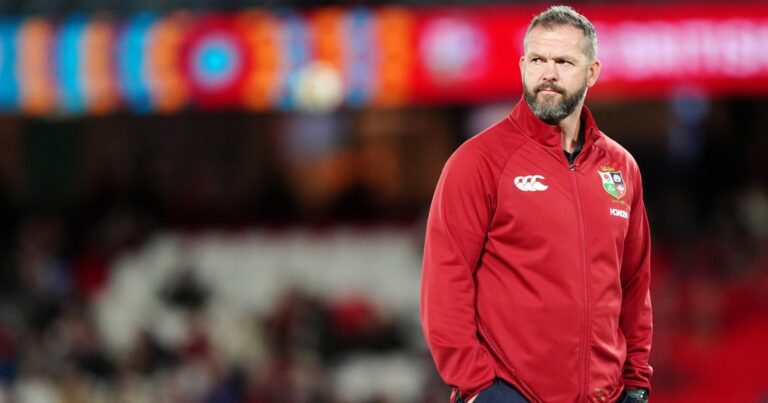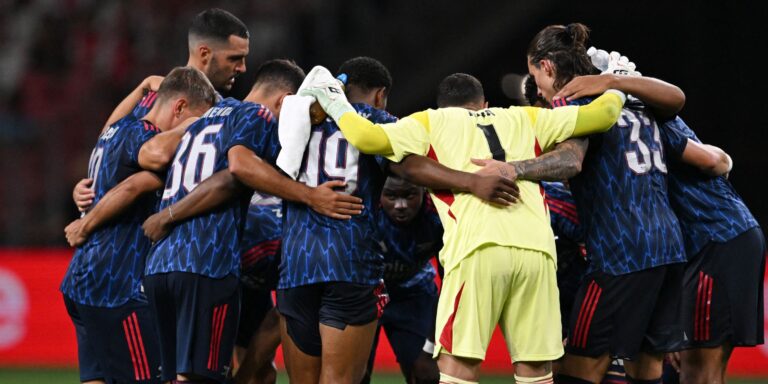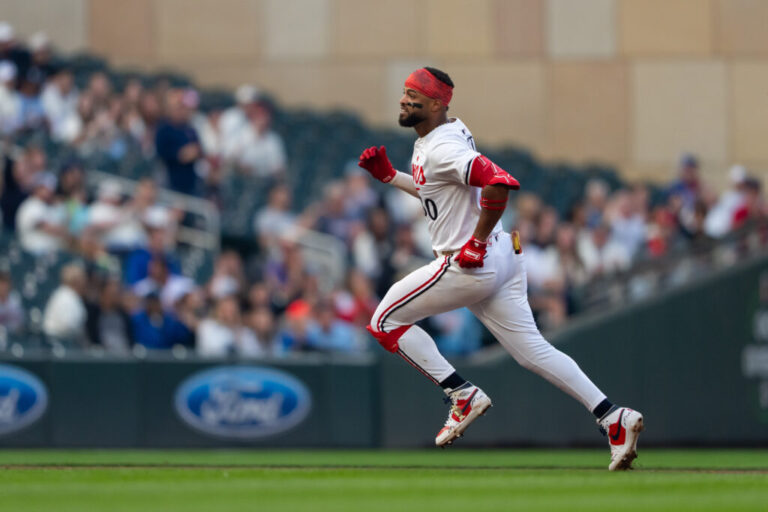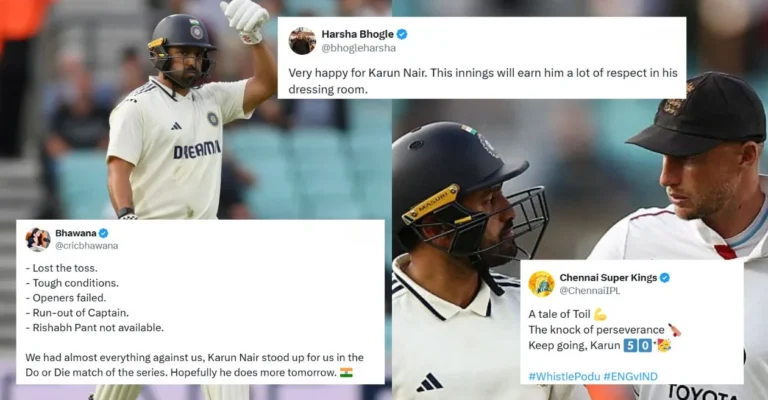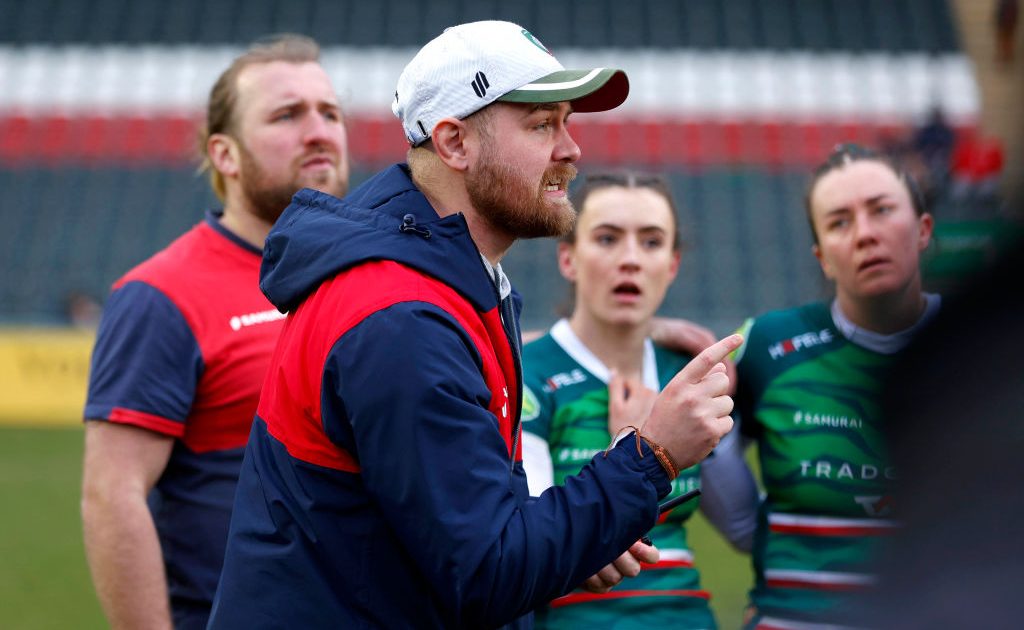
It has been a long time since Tom Hudson called Greater Manchester home, but 14 years after he left aged 16, he is now back living in the north-west and looking forward to his first season as Sale Sharks Women head coach.
His is quite the odyssey, one that featured spells at Leicester Tigers – his original destination in 2011 – Gloucester, Ampthill, Leicester Tigers Women, Cheltenham Tigers, and Kuala Lumpur Tigers.
Those experiences have shaped him and helped him become the coach he is. Now, at 30 he is one of the youngest head coaches in Premiership Women’s Rugby (PWR), having taken over from Rachel Taylor.
Some would see improving the team that finished bottom with four points in last season’s PWR as a Herculean task, but one thing Hudson doesn’t lack is enthusiasm for the labours ahead.
“I get up every morning, and I cannot wait for the day,” said Hudson. “I can’t wait to do the one-on-ones with the girls or have the staff meeting. Even stuff that most would consider to be boring.
“I’m not a true leader by any chance, but just that idea of pointing everyone in the one direction and going with it, because when it happens it is magical.”
Hudson grew up in nearby Heaton Moor and after a stint in the Sale Sharks Developing Player Programme (DPP) he moved to Leicester Tigers to join their academy. A serious injury put him on the sidelines and as he made his recovery he spent time in Malaysia’s capital at the Tigers’ sister club.
While there he met his current partner and began a love of coaching that continued when he joined Gloucester, and then Ampthill as a player-coach. As such, when he had to step away from playing at the top level, it wasn’t the upheaval it may have been for others.
“I was heartbroken to have retired and retired in the way that I couldn’t really live normal day life. Even walking and moving was fairly sore,” Hudson said. “But none of the sob story. It was the greatest thing that ever happened to me.
“If I was to give you my top 10 best coaching experiences they would all be above my top one playing experience.”
Hudson’s return to Sale was agreed earlier in the year and ended a two-year spell at Welford Road. In his first season he was the senior coach, and in his second he was promoted to head coach.
Leicester finished last season’s PWR in penultimate place, 14 points above Sale. They enjoyed three victories, two of which came over his new employers.
The two women at the heart of Sale Sharks Women – co-owner Michelle Orange, and World Cup winning England captain Katy Daley-McLean, now performance lead for the women’s programme – were key to persuading Hudson to take on the challenge of raising the team.
Hudson describes them both as “phenomenal” and they have been key to laying the groundwork that he is now aiming to build on.
One of the key aims is to raise the team’s fitness so they can handle the PWR’s ever-growing intensity, something that has hurt them in recent seasons.
Hudson is aware that this is likely to take more than one season to achieve and most of his aims right now are about catching the low hanging fruit.
That said, Sale will be helped by some well-known names joining the squad, though they won’t really feel their impact until after Christmas once the 2025 Women’s Rugby World Cup, and the post-tournament recovery, is out of the way.
Chief among the arrivals is England fly-half Holly Aitchison, who moves north from Bristol Bears. Also starting life at Heywood Road are her fellow England internationals Amy Cokayne and Charlotte Fray, and Scotland second row Eva Donaldson, who all follow Hudson to Sale from Leicester.
Welsh international Courtney Keight is one of three other Celts to sign, along with Scotland’s Leah Bartlett, and Rhona Lloyd.
Like Aitchison, Keight has signed from Bristol Bears, and she recently told RugbyPass, “I kept a close eye on Sale as the environment’s always been something that appealed a lot to me. Then when I could see that they were looking to invest more on field as well and really put their hand up for climbing up the table, then that was just a no brainer for me.”
With many of the star players focused on the World Cup in August and September, Hudson doesn’t expect their impact to be felt immediately.
“We have signed some very, very good people and coincidentally good people make good rugby players,” he said. “They bring it to bear in terms of the younger players as well and showing everyone what it takes to be one of the best players in the world.
“The most important thing when you consider Holly Aitchison and Amy Cockayne is that their true value probably won’t be in year one as all their prep, all their focus is on the World Cup.
“Our idea is that we train with intensity that our domestic girls can cope with, and we push those boundaries, and when they think they’ve hit their ceiling suddenly, the internationals come back, and we go through the roof again. So, it’ll be that re-education around Christmas time that I’m looking forward to.
“My motivation truly comes with being able to up skill them and turn their fortunes around. That’s why I get up in the morning.”
The PWR season begins on 25th October, three weeks after the World Cup final. Before then Hudson will have the chance to run the rule over his players in the PWR Cup which runs from mid-August to mid-October.
As the only elite women’s team in the north, Hudson is well aware of the importance the club plays in representing union-playing women in that vast region.
The first step in that is to improve results on the pitch, especially at their Heywood Road home.
“We’ve got to make sure that we’re a fortress, and we become a beacon for all the men, women, and kids that want to play rugby,” Hudson said.
“Then when we start winning and we’re inspiring, then we can really start looking at participation. We’ve got to make sure that we’re a brand of rugby people want to be involved in, and then we can spread the word.”
Finally, Hudson sums up what it means to be back at the club he left nearly half his lifetime ago.
“I didn’t realise the connection I had with Sale Sharks until I went back there,” he said. “They’ve got northern grit and northern values written all over them. Until you’re in that environment, you don’t really realise what it means.
“To be able to put on a bit of a show 20 minutes from where people live, down at Heywood Road, they can come and see what we’ve been doing for a long time and that is special. I’m looking forward to it.”

